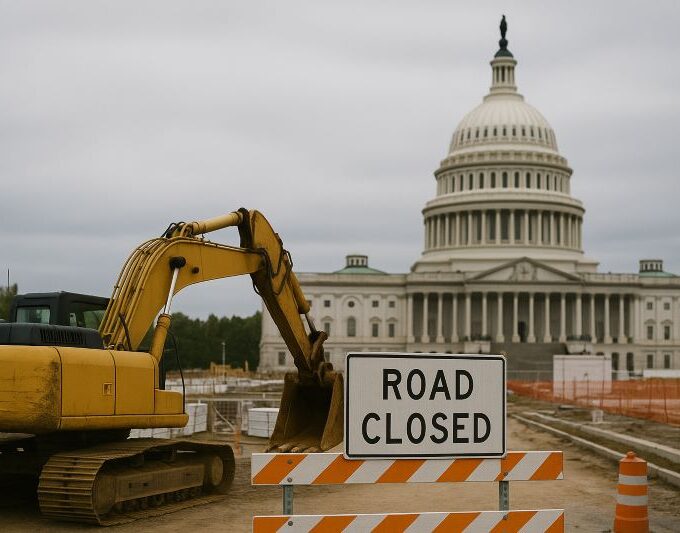The Canadian government recently filed a formal complaint with the World Trade Organization (WTO) against the tariffs imposed by the United States on imported steel and aluminum. The move marks another legal move by Canada to challenge the high tariffs imposed by the United States in a trade dispute that has been ongoing for the past several years. Since 2018, the tariffs on steel and aluminum imposed by the United States on the grounds of ‘national security’ have become one of the main points of trade dispute between the two countries. This case is not only about Canada’s economic interests but also has the potential to have far-reaching implications for global trade rules.
Background: Origins of U.S. Tariff Policy
In 2018, the U.S. government, under then-President Donald Trump, announced tariffs of 25 percent and 10 percent on imported steel and aluminum, respectively, based on Section 232 of the Trade Expansion Act of 1962. The Trump administration argues that steel and aluminum are important pillars of US military power, and therefore increased tariffs are used to reduce imports of foreign steel and aluminum products, protect domestic industries, and maintain national security.
The U.S. has implemented this policy on major trading partners such as Canada, the European Union, and China, claiming that steel and aluminum exports from these countries threaten U.S. economic and defense security. Canada, as one of the largest suppliers of U.S. steel and aluminum products, has been particularly affected by this policy. Although the United States subsequently reached a U.S.-Mexico-Canada Agreement (USMCA) with Canada and imposed quota restrictions on certain steel and aluminum products, the overall tariff policy has not fundamentally changed.
Canada’s Position: Seeking Fair Trade
The Government of Canada has expressed strong dissatisfaction with the U.S. tariff policy, arguing that the U.S. approach disregards multilateral trade principles and lacks a legal basis. The Government of Canada notes that the Trump Administration’s decision to impose tariffs is based on the vague and opaque rationale of ‘national security,’ completely ignores the actual functioning of global supply chains, and undermines Canada’s long-standing trade relationship with the United States.
Canada has always believed in a free and fair global trading system that is built on rules, said Finance Minister Chrystia Freeland. The U.S. tariff policy not only harms Canada’s economic interests but also puts the global trade order at risk.
Freeland also stressed that Canada will continue to defend its trade interests through peaceful and legal means. Canada has formally filed a complaint with the United States through the WTO dispute settlement mechanism, requesting the United States to withdraw the tariffs imposed on Canadian steel and aluminum and restore a fair and competitive market environment.
The Content of Canada’s Complaint and the Role of the WTO
Canada’s complaint states that the U.S. imposition of tariffs under Section 232 of the Trade Expansion Act (TEA) violates the fundamental principles of the WTO. According to WTO rules, members must have a sound basis for imposing trade-restrictive measures, and the measures should meet the criteria of ‘necessity’ and ‘proportionality’. Canada argued that the United States tariff policy lacked factual evidence of a ‘national security’ threat to Canadian steel and aluminum products, and therefore violated the relevant WTO provisions.
The complaint puts the WTO’s dispute settlement mechanism back in the spotlight of the international trade arena, as the WTO usually establishes a panel of experts to review the case and assess whether the measures are consistent with international trade rules. If the panel rules that the U.S. tariff policy is not in line with WTO regulations, the U.S. may need to withdraw the tariffs or make adjustments to the WTO ruling.
The WTO’s involvement will mean that the case is not just an economic dispute between the two countries, but also about the fairness and sustainability of global trade rules. If the WTO rules that the US tariff measures violate multilateral trade principles, other member states may take the opportunity to question similar protectionist policies and further promote openness and transparency in global trade.

Global Trade Repercussions: Far-Reaching
The US steel and aluminum tariff policy has already had a profound impact on the global steel and aluminum markets. The US tariff measures have led to an increase in the cost of imported steel and aluminum products while forcing other countries to adopt retaliatory tariffs. For example, economies such as the EU and China have imposed tariffs on several US goods in response to the US steel and aluminum tariffs. This ‘tariff war’ has destabilized global markets, causing many multinational companies to face disruptions in their supply chains and higher production costs.
For Canada, the U.S. tariffs have had a direct impact on the competitiveness of its steel and aluminum industries. Canadian Steel Producers Association (Canadian Steel Association) has said that although Canadian steel and aluminum products are not related to the national security issues of the United States, the United States tariffs have made Canada’s export competitiveness decline, and many Canadian enterprises are facing higher trade barriers, which in turn affects employment and production.
In addition, Canada noted that the U.S. tariff policy has created market uncertainty. Many Canadian businesses must begin transactions with the U.S. without clear rules, making long-term planning and strategic decision-making more difficult.
Future Outlook: Likelihood and Impact of a WTO Ruling
The WTO is currently reviewing Canada’s complaint, and while a ruling will take some time, a decision in this case will likely have a significant impact on the implementation and adjustment of international trade rules. If the WTO rules that the U.S. tariff measures are unlawful, it may provide strong support for other countries to push global trade in the direction of greater fairness and freedom.
However, even if the WTO makes a ruling, it is still unknown whether the U.S. will comply with the ruling in practice. The ‘America First’ policy under the Trump administration has shown challenges and dissatisfaction with multilateral mechanisms, while the current President Biden, although his attitude has changed, still has more room for his position on trade protectionism. Therefore, the WTO’s ruling may trigger new trade negotiations or disputes.
Regardless of the final ruling, the steel and aluminum tariff dispute between Canada and the US has become an important case to watch in the global trading system. The case is not only about the trade interests of the two countries but also a critical moment to test whether the global trading system can effectively deal with unilateralism and protectionism.
Conclusion:
Canada’s complaint to the WTO is both a response to U.S. tariff policies and a defense of fairness in global trade. Behind this trade dispute lie deeper issues of the international trade order. Regardless of the final ruling, this case will undoubtedly influence the future direction of global economic and trade policy.











